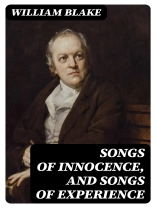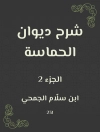William Blake’s ‘Songs of Innocence and of Experience’ serves as a profound examination of the duality of the human condition, juxtaposing the pastoral simplicity and purity of childhood innocence with the more complex, often harsh realities of adult experience. Through a series of lyrical poems and evocative illustrations, Blake employs a unique blend of spirituality and social critique, employing various modes such as metaphor and symbolism to explore themes of love, nature, and societal constraints. The contrasting sections—Songs of Innocence and Songs of Experience—invite readers to navigate the nuanced landscape of human life, challenging the dichotomy between innocence and experience that characterized the moral and philosophical debates of the late 18th century. An influential figure in the Romantic movement, William Blake (1757-1827) was a visionary poet, painter, and printmaker whose work has remained integral to the understanding of English literature. His deeply personal upbringing and profound spiritual beliefs informed his artistic endeavors, ultimately leading him to illustrate his vision of a world in constant fluctuation between innocence and awakening. Blake’s life, marked by his disdain for social injustices and his quest for spiritual truth, influenced his desire to present an alternative perspective on societal norms through his art and poetry. ‘Songs of Innocence and of Experience’ is essential for any reader interested in the interplay of innocence and complexity in human nature. Blake’s insightful commentary on innocence lost and the darker undertones of experience offers a timeless reflection that resonates across generations. This book not only enriches our understanding of poetry but challenges readers to consider their own perspectives on innocence and the world they inhabit.
عن المؤلف
William Blake (1757–1827) was a seminal figure in the history of the poetry and visual arts of the Romantic Age. An English poet, painter, and printmaker, Blake has left an indelible mark on the literary world with his radical approach to thematic and visual expression. Born in London, Blake’s work was largely unappreciated during his lifetime, but posthumously, he is considered a pivotal figure in the history of both poetry and the visual arts of the Romantic period. Blake’s prophetic poetry and artistic work heralded the countercultural revolutions and rebellious spirit of later generations. He has held a profound influence on the likes of Beat poets and 1960s counterculture movements.
A notably mystical and visionary thinker, Blake’s unique poetic compositions like ‘Songs of Innocence, and Songs of Experience’ (1789, 1794) exhibit his fascination with dichotomies: innocence versus experience, earthly versus divine, and constraint versus imagination. In these collections, Blake employed his own innovative method for etching illustrations and text onto copper plates, concurrently blending visual art with his poetic verses. His literary style is known for its rhythmical complexity and use of symbolism, with ‘Songs of Innocence’ extolling the virtues of joy and freedom seen through the eyes of children, and ‘Songs of Experience’ presenting a more mature and sometimes cynical view of the world. Scholars often laud the way Blake’s poetry transcends traditional aesthetic boundaries and challenges societal norms. His work continues to be widely studied and has inspired countless artists, writers, and thinkers for over two centuries.












